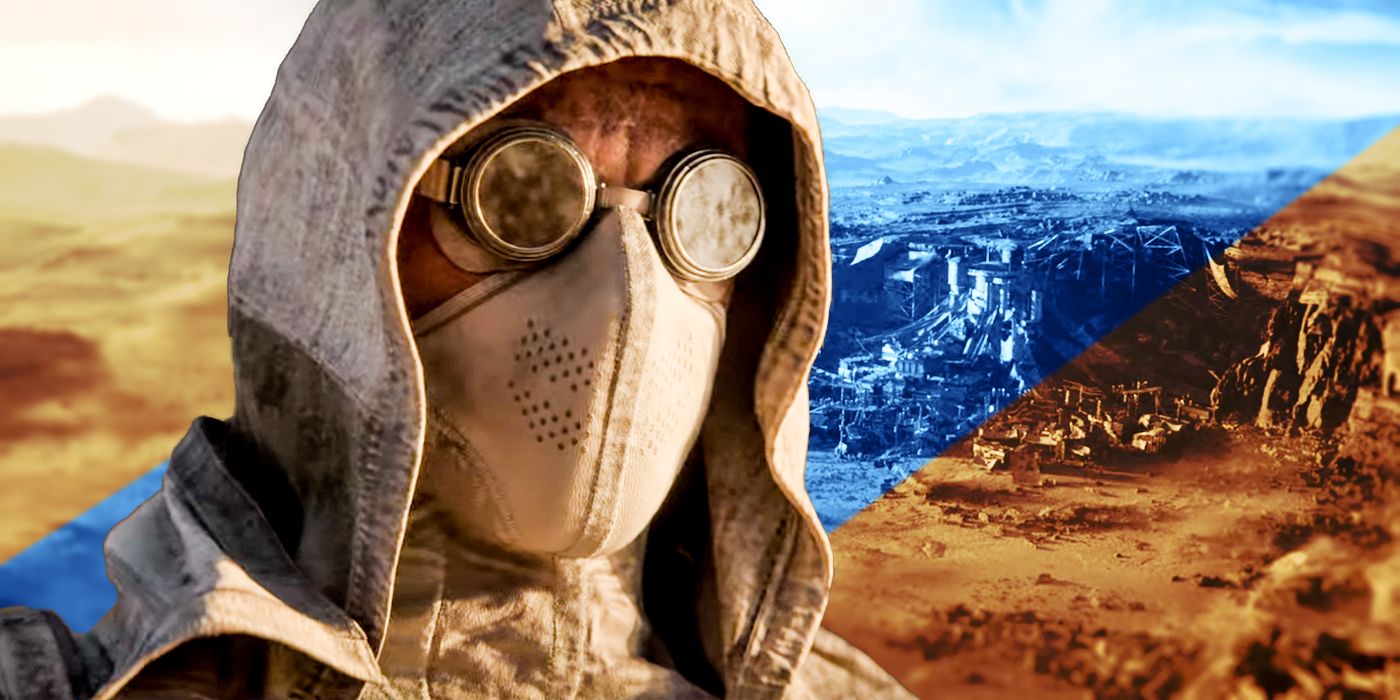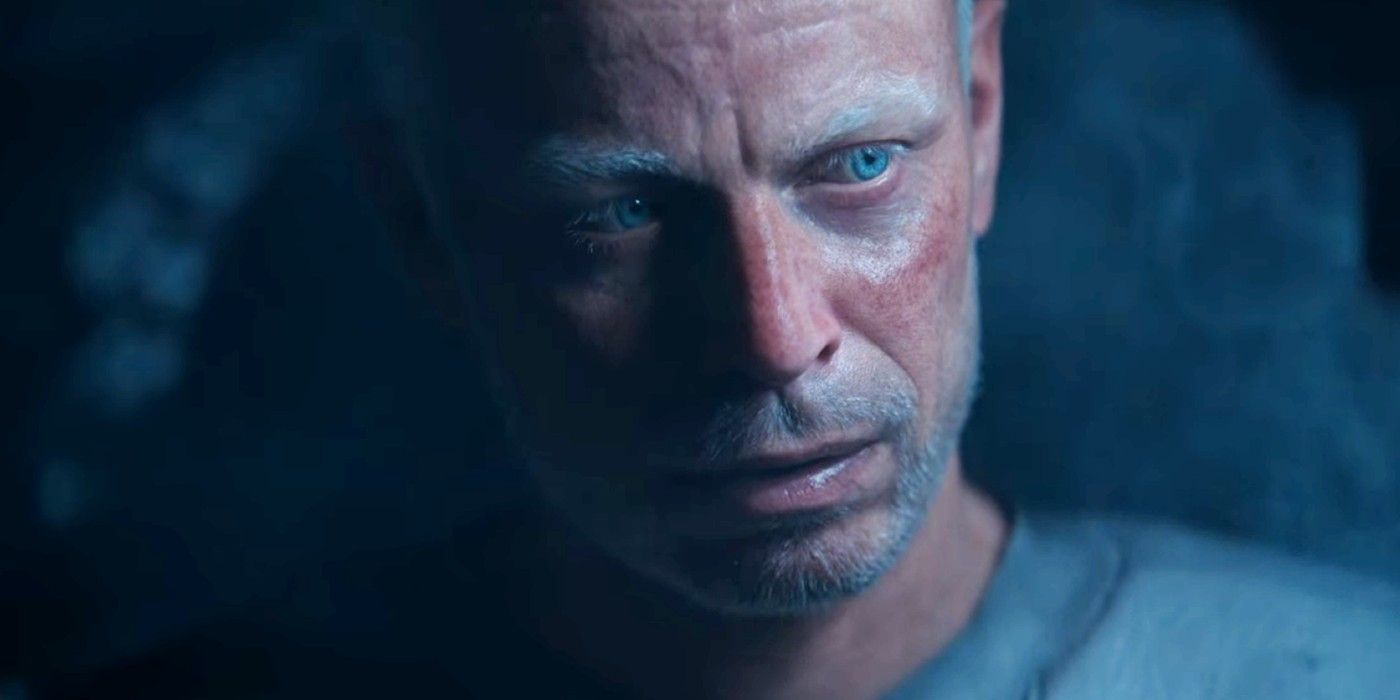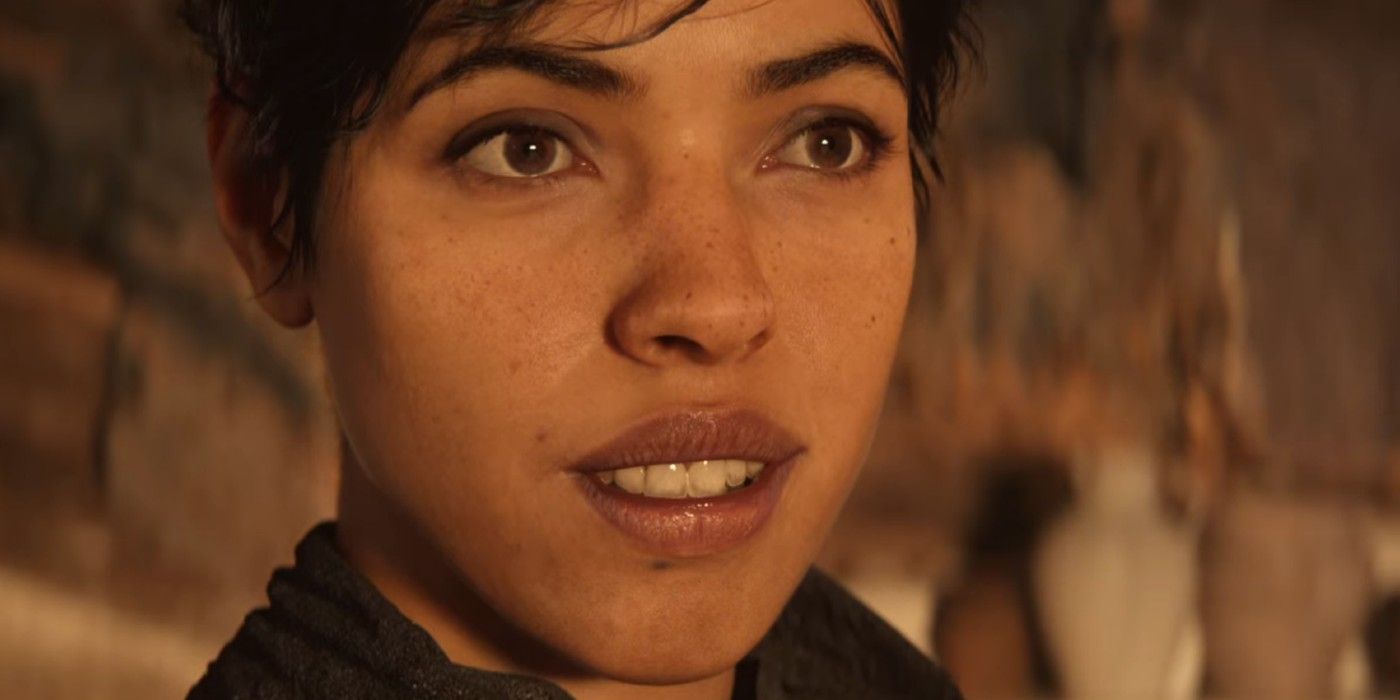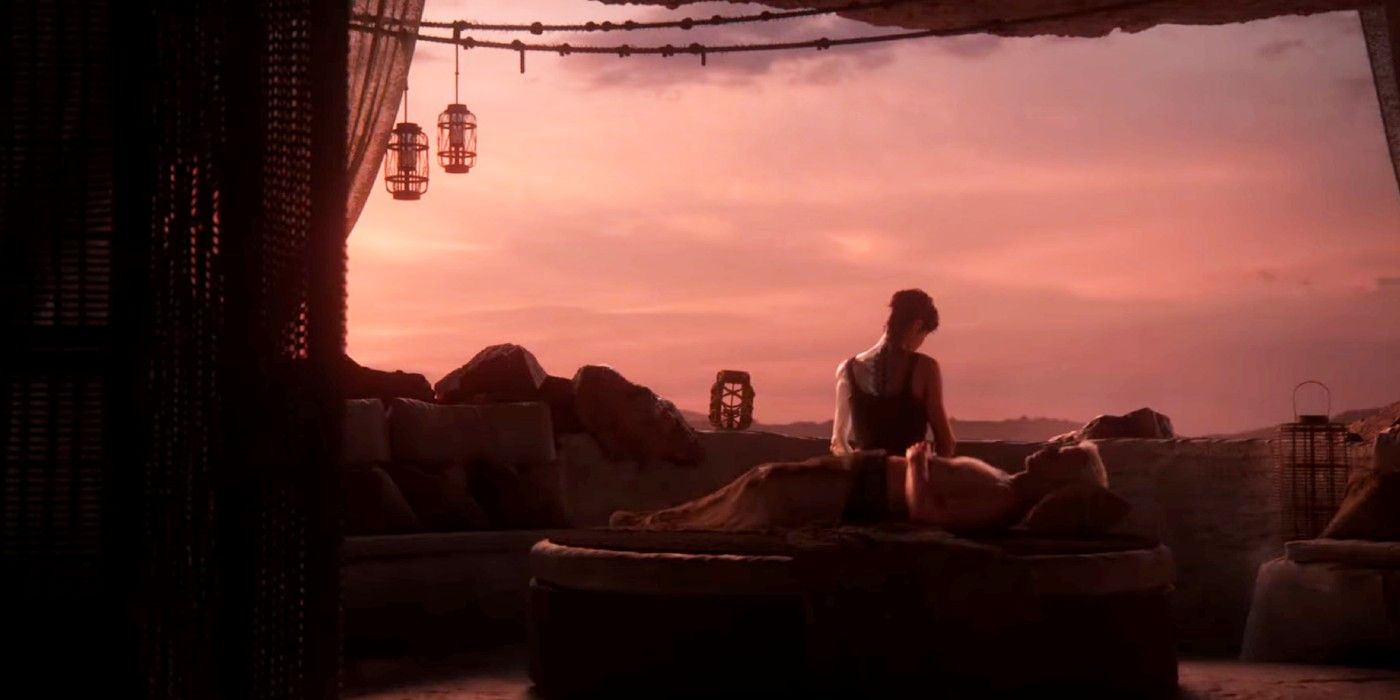
In Netflix's Love, Death and Robots season 2 episode "Snow in the Desert," a lone wanderer finds himself the target of bounty hunters who want a particular part of his anatomy - and they're not the only ones. A mysterious woman called Hirald is also looking for Snow, and the end of the episode it's revealed that she has a secret of her own.
Based on the short story of the same name by Neal Asher, "Snow in the Desert" takes place on the desert planet of Vatch, where water is extremely scarce and the sun's rays are dangerously hot. The episode opens with Snow arriving at a small town to collect a delivery of strawberries, a rare delicacy shipped all the way from his home planet of Earth. Unfortunately, a merchant called Baris has placed a bounty on Snow's head - or, more precisely, his testicles.
Hirald is interested in a similar area, and not just because of the romance that flares between the two characters. After Baris and his fighters track Snow down at his home, a fight ensues that unveils Hirald for what she truly is. Here's a breakdown of the ending of Love, Death and Robots season 2, episode 4, "Snow in the Desert," the twist of Hirald's identity, and what the episode's final moment means.

Snow is actually hundreds (possibly thousands) of years old, thanks to a unique gonadotrophin releasing hormone that causes his cells to regenerate. This not only makes him effectively immortal, it also means that he can heal at an accelerated rate and even regrow entire limbs. Baris sends bounty hunters after Snow with the goal of acquiring his testicles and having access to an unlimited supply of his genetic material. This would give Baris a monopoly on immortality, which he could use to make himself immortal, and also very, very rich.

Hirald is seeking out Snow for similar reasons, though not with the intent of killing him. She works for Earth Central, a highly advanced AI within Earth's government that is also looking for the secret to immortality within Snow's genetics. Unlike Baris, Earth Central wants Snow to come voluntarily and allow himself to be studied while still alive. It doesn't want to suppress the secret of his immortality or gain exclusive access to it, but to disseminate the knowledge so that no one has a monopoly on it and it can help people instead of being weaponized. In the original short story it's noted that "only human beings and other low-grade sentients could become corrupt," whereas an AI like Earth Central is incorruptible and therefore acts neutrally and altruistically.
As for why Hirald is particularly fascinated with Snow, it's because they're more like one another than it seems. After she's shot in the head by Baris, it's revealed that her skin and skeleton underneath are synthetic, and she possesses superhuman strength. As a cyborg, Hirald is as much of an outsider as Snow is - and that's not the only thing they have in common.

Though it's not explicitly stated in the Love, Death and Robots adaptation, the original short story makes the ending of "Snow in the Desert" clearer. Because Hirald is a cyborg, with only nerves, a spinal column and most of a brain remaining from her former human body, she will never grow old or die. Unlike Snow's previous wife, she will not be tormented and end up killing herself in despair as a result of his immortality. Hirald represents hope for an end to Snow's life of solitude, and he represents the same thing to her.
from ScreenRant - Feed https://ift.tt/3buFYcH
via IFTTT







0 comments:
Post a Comment